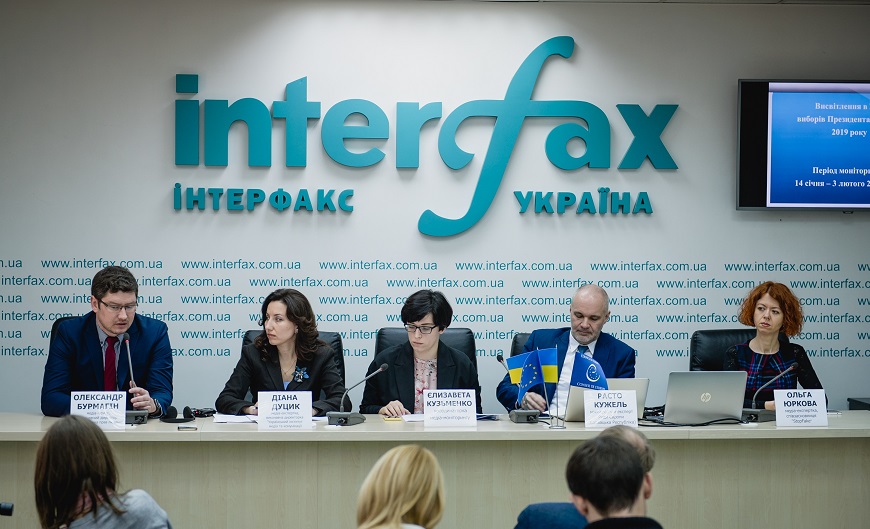Kyiv, Ukraine - On 18 February, 2019 a press conference was held at 11:00 in the premises of the Information Agency "Interfax Ukraine" by a coalition of CSOs consisting of "The Commission on Journalism Ethics", "Human Rights Platform", "Ukrainian Media and Communications Institute" and "StopFake" on the first interim results of independent public monitoring of media coverage of the Presidential pre-election campaign in Ukraine. The monitoring covered the period of 14 January - 3 February 2019 and is being carried out with the support of the Council of Europe Projects “Supporting the transparency, inclusiveness and integrity of electoral practice in Ukraine” and “Strengthening freedom of media, access to information and reinforcing the public broadcasting system in Ukraine", which are implemented within the framework of the Council of Europe Action Plan for Ukraine 2018-2021.
Preliminary results from the first three weeks of monitoring show significant differences in the way candidates have been portrayed so far. While as a whole, the media have so far provided voters with a diverse range of information about candidates, they have showed their more or less open sympathies towards particular candidates and political subjects.
That being said, President Petro Poroshenko was the most covered candidate on five monitored TV channels and six online media outlets. The other two main frontrunners, Yulia Tymoshenko and Volodymyr Zelenskyi, were the most covered candidates on one TV channel and one online outlet, respectively.
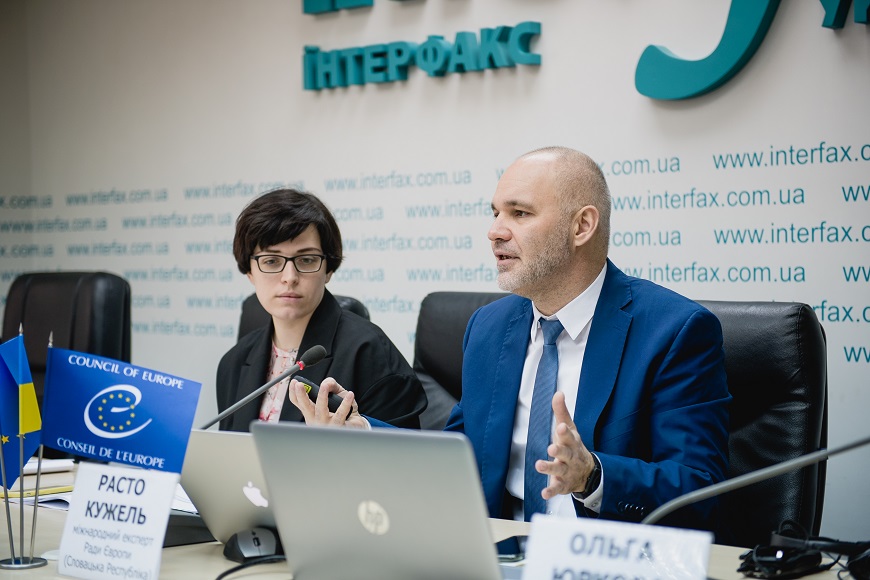
“When it comes to the media coverage of the election so far, we have seen a mixed picture. On one hand, the media have covered extensively activities of candidates as well as procedural aspects related to elections. On the other hand, most media have shown their preferences towards concrete candidates”, said Rasťo Kužel, international expert of the Council of Europe. “In order to be able to make a reasonable choice, voters should benefit from a more unbiased and analytical coverage of the campaign.
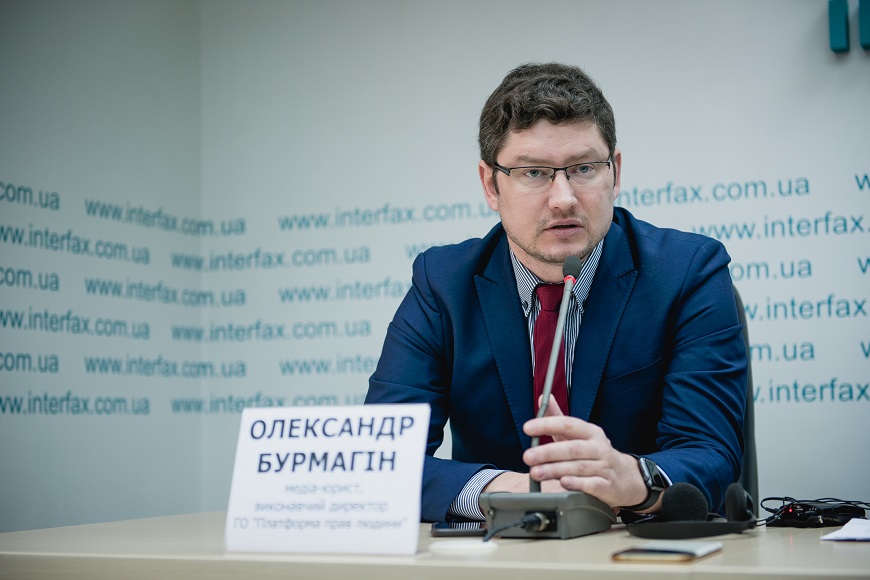
Media lawyer and Executive Director of the NGO “Human Rights Platform” Oleksandr Burmahin said: "The first results of monitoring prove that similarly to previous election campaigns, for the most part media do not observe the requirements of the law regarding the need for balanced and unbiased media coverage of an electoral campaign. As a result, the audience, future voters lack the prerequisites for making an informed and conscious choice, and on the contrary, become subject to various manipulations. This situation can be changed only through introduction of clear rules at the legislative level, significant responsibility for their violation and operation of a professional, independent regulator(s) which possess(es) sufficient powers".
Candidates’ appearance in the news and current affairs programmes does not appear to be always justified by newsworthiness, but most likely by the interests of owners. While talk show programs have provided some opportunity for candidates to convey their messages to the electorate and allowed voters to receive information about candidates, the clear demonstration of political preferences in favor or against a particular candidate reflected in the format and behavior of the hosts reduced their value for voters.
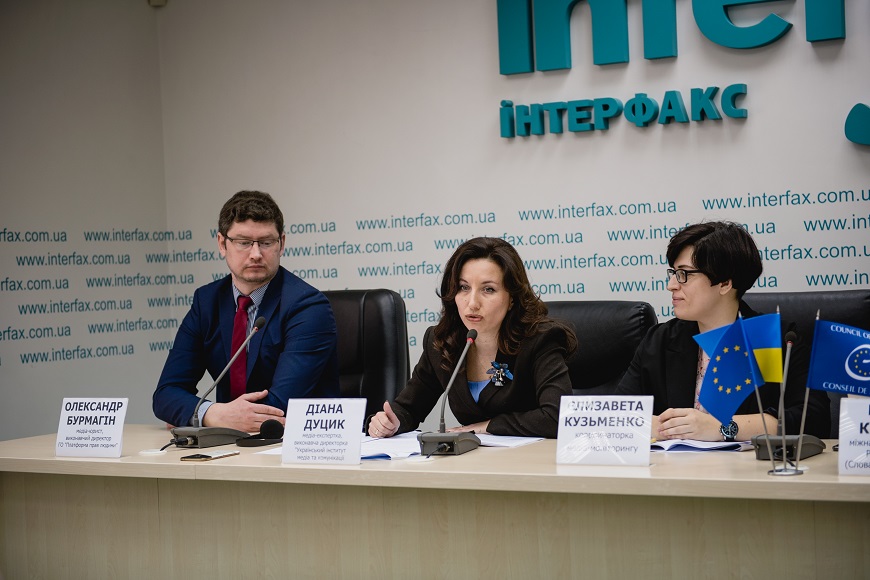
Diana Dutsyk, media expert and Executive Director of the NGO "Ukrainian Institute of Media and Communication", underlined: "Almost all media which were included in the monitoring sample (primarily - TV channels), with a minor exception, have demonstrated their sympathies and antipathies towards particular candidates. In the majority of cases this could be explained not so much by the position of the journalists but rather by position of the media owners, which have their own political interests. This trend characterizes not only current but almost all electoral campaigns in Ukraine".
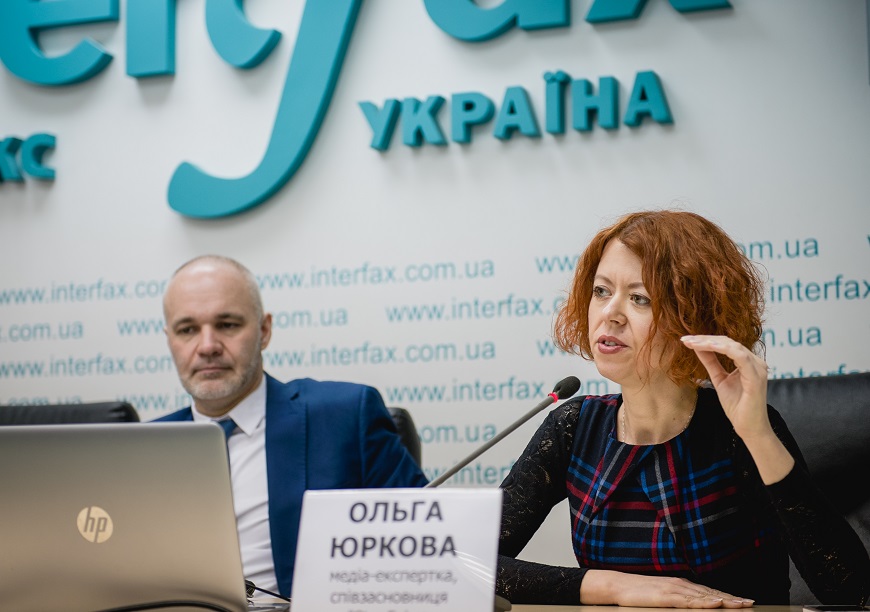
"The news that echo the Russian propaganda narratives often appeared in the online media," said Olga Yurkova, media expert and co-founder of NGO “StopFake”. “For example, four news websites on 31 January simultaneously published Russian President Vladimir Putin's statement about the religious situation in Ukraine. The statement was discriminatory towards United Ukrainian Orthodox Church and did not present the position of the Ukrainian side. Getting independence by the Ukrainian Orthodox Church was the main topic, around which such messages appeared. Other topics concerned the news legitimizing the occupation of Donbas or Crimea and discrediting Ukrainian authorities. Some TV channels while covering the situation in the frontline avoided calling the opposite side other than "fighters" and do not call Russia an aggressor state or invader."
The monitoring team has also analyzed potential external influence in the upcoming elections. The team found that some Russian propaganda narratives penetrated the Ukrainian media sphere, particularly through online media, including the attempts to discredit the Ukrainian Orthodox Church, Ukrainian authorities and some politicians, as well as legitimizing the occupation of the Crimea and part of Donbas. Some of the monitored media outlets relied only on the Russian sources of information in their news items, without coverage of the Ukrainian position.
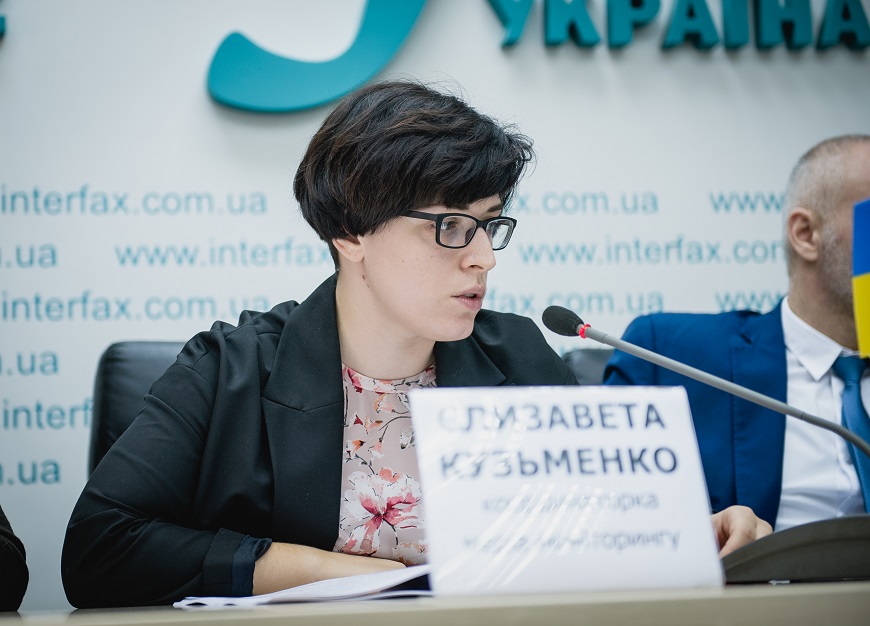
The Communications Expert of the Commission on Journalism Ethics, Ielyzaveta Kuzmenko, who is also the coordinator of the media monitoring, said: “The monitoring team has already identified 16 cases of possible violations of the Code of Journalism Ethics most of which were related to not separating facts from comments, not separating and properly labeling advertising from news content and improper use of public opinion polls. All of them will be reviewed by the Commission on Journalism Ethics.”
The monitoring is intended to offer professional, comprehensive and objective assessment of political diversity and balance in news and current affairs coverage on 10 television channels and 8 online media outlets. Moreover, the role of social media during elections, the potential impact of disinformation and propaganda and to what extent media struggle against stereotypes and how they portray gender-related topics are other aspects and indicators included in the monitoring. The media monitoring also aims to inform the public about the conduct of media during the elections and initiate a discussion about the objectivity and quality of the media reporting as well as promote their adherence to international standards and best practices regarding freedom of expression and independence of media.
The data for media monitoring was collected by 15 independent specialists, who were working full-time at least 5 days a week.
The monitoring team will continue to carry out the monitoring of the media throughout the pre-election period to determine if the above-mentioned trends keep standing.
More information as well as the text of the report can be found of the website of the Commission on Journalism Ethics http://www.cje.org.ua/ua/news/pershi-rezultaty-monitoryngu-pokazaly-obshyrne-ale-chasto-uperedzhene-vysvitlennya
The next report will be issued in the last week of the campaign and it will assess the entire campaign in both traditional and social media. It will also focus on the potential external influence in elections as well as on the gender-related coverage. The full report with the monitoring results will be available at the web-site of NGO "The Commission on Journalism Ethics" (http://cje.org.ua ) in both English and Ukrainian.



